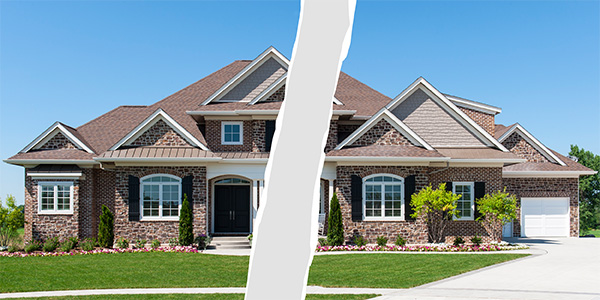Homeowners
Need Cash? Why Homeowners May Want to Consider an FHA Cash-Out Refinance Loan
February 25, 2025
If you’re one of the many homeowners whose property value has risen, you may be wondering how you could use that equity to put some extra cash in your pocket.
The typical homeowner had more than $311,000 in equity in the third quarter of 2024, according to real estate data firm CoreLogic.
One way those with Federal Housing Administration (FHA) loans can tap into that equity is through a cash-out refinance. This is when you replace your existing mortgage with a new, larger one and get the difference in cash.
You can use the difference to pay off bills, fund home improvements, or take that trip around the world. You’re responsible for repaying the loan, which includes your mortgage, every month.
“Homes that were purchased three, four, five years ago, have increased [in value] substantially,” said Oscar Reto, a branch manager at New American Funding in Charlotte, N.C. “So, people are asking, ‘How do I tap into that money?’”
Why homeowners may want an FHA cash-out refinance
Refinancing a mortgage is fairly common.
Homeowners often consider FHA cash-out refinances if they need larger amounts of money to consolidate debt, make bill payments, or fund a large expense.
These loans often have lower interest rates than credit cards and may be easier to qualify for than other types of loans.
“It’s very rare that somebody keeps their mortgage for the typical 30-year term of the loan,” said Sean Rapp, a sales manager at New American Funding in Tustin, Calif. “Statistically, people will refinance or sell their home every five to seven years.”
How to qualify for an FHA cash-out refinance

If you’re thinking about applying for an FHA cash-out refinance, you’ll want to make sure you have equity in your home. You may be able to take out up to 80% of your home’s value.
You will also need to qualify for the loan.
Applicants must have a credit score of 500 or higher, although some lenders prefer credit scores above 580. Additionally, lenders tend to want borrowers to have a debt-to-income (DTI) ratio of 43% or less. Your DTI looks at how much debt you have compared to how much you earn. However, you may be able to get a cash-out refinance with a higher DTI.
How much does an FHA cash-out refinance cost?
Homeowners should make sure these loans are right for them, as there are costs associated with them. You will generally pay 2% to 6% of the loan amount.
This includes loan origination costs, paying for an appraisal to figure out the home’s worth, and any legal and loan filing charges, among other fees.
Mortgage insurance premiums are required for FHA loans. If you put down 10% or less, the mortgage insurance will remain for the life of the loan. This is generally included in your monthly mortgage payment.
Given the fees associated with these loans, they are often best for homeowners seeking larger sums of money.
“Probably the biggest use for the FHA cash-out program right now is just consolidating debt,” said Rapp. “The financing you can get through your home is typically cheaper than what you’re going to be able to find out there for personal or consumer credit.”
Oscar Reto NMLS# 505436
Sean Rapp NMLS# 100049625






 Smart Moves Start Here.
Smart Moves Start Here.